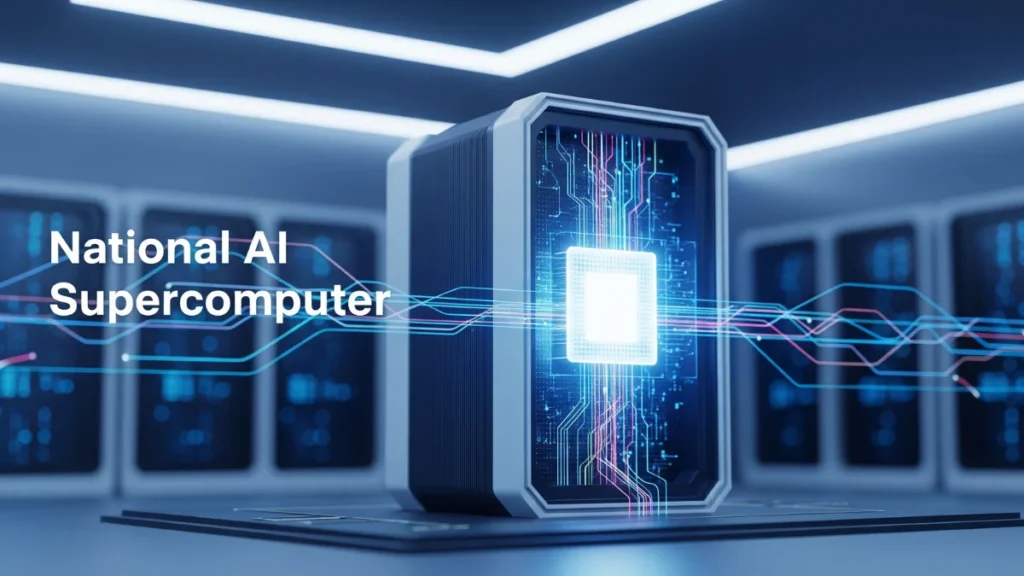In an era when AI is transforming every corner of science, Georgia Tech and its partners are stepping up to put cutting-edge computing power into the hands of researchers nationwide. Backed by a hefty grant from the National Science Foundation (NSF), the new system promises to supercharge breakthroughs in medicine, clean energy, neuroscience, and advanced manufacturing.
Key Takeaway:
- Nexus will rank among the most advanced AI research systems in the U.S.
- Open to scientists across all American institutions.
- Aims to solve big problems faster: new drugs, cleaner energy, smarter tech.
- Completion expected by spring 2026.
Bringing Next-Level AI to More Scientists
So, what exactly makes Nexus special? For starters, it’s designed from scratch for the age of artificial intelligence. Many researchers today rely on AI to sift through huge datasets, run complex simulations, and test theories that would take years — or decades — by hand. But this kind of computing power has mostly been locked away in elite tech hubs or industry labs.
Nexus changes that. By democratizing access, it gives scientists at universities and research centers across the country a chance to compete on equal footing.
“This supercomputer will help level the playing field,” said Suresh Marru, who leads the Nexus project and directs Georgia Tech’s new Center for AI in Science and Engineering. “It’s built to make AI tools easier to use and available to more people in more places.”
A Machine Built for the Future
Think of Nexus as a brain on turbo mode. When it’s fully up and running, the system will be capable of more than 400 quadrillion operations per second. That’s like every person on Earth doing 50 million calculations at the same time — without stopping.
Behind that power is a huge store of memory and storage. Nexus will pack 330 trillion bytes of memory to handle giant, complex problems like mapping the brain or engineering new quantum materials. It’ll also hold 10 quadrillion bytes of flash storage — enough digital paper to reach the moon and back.
And speed won’t be an issue. Nexus will move data at lightning-fast rates, so researchers won’t waste precious time waiting for results.
Why It Matters Right Now
AI isn’t just a trendy buzzword — it’s changing the entire scientific method. From tracking climate change to developing lifesaving vaccines, AI can handle tasks that used to take years in just weeks or months. But only if scientists have the horsepower.
“Georgia Tech is proud to be one of the nation’s leading sources of the AI talent and technologies powering a revolution in our economy,” said Ángel Cabrera, Georgia Tech’s president. “It’s fitting we’ve been selected to host this new supercomputer, which will support a new wave of AI-centered innovation across the nation.”
A Team Effort to Boost U.S. Research
Georgia Tech won’t be working alone. It’s teaming up with the National Center for Supercomputing Applications at the University of Illinois Urbana-Champaign — an institution known for running some of the country’s top academic supercomputers.
Together, they’ll link their systems through a new ultra-fast network, forming a national research backbone that connects scientists coast to coast.
“Nexus is more than a supercomputer — it’s a symbol of what’s possible when leading institutions work together to advance science,” said Charles Isbell, chancellor of the University of Illinois and former dean at Georgia Tech.
More Than Just Hardware
Nexus isn’t Georgia Tech’s first leap into supercomputing. It follows the footsteps of HIVE, another AI-focused system funded by the NSF. Combined with the university’s high-tech CODA data center, Georgia Tech is staking its claim as a heavyweight in academic computing.
“With Nexus, Georgia Tech joins the league of top academic supercomputing centers,” said Srinivas Aluru, Regents’ Professor and senior associate dean in the College of Computing. “This has been years in the making.”
How to Access Nexus
Once construction wraps up — planned for spring 2026 — researchers nationwide will be able to apply to use Nexus through an NSF review process. Georgia Tech will manage the system and support users while reserving up to 10% of Nexus’s capacity for its own projects.
Katie Antypas, director of the NSF’s Office of Advanced Cyberinfrastructure, put it simply: “Nexus’s novel design will speed up the time it takes to make scientific discoveries. We’re excited to add it to our portfolio of advanced computing tools.”
What’s Next
From the lab bench to the launchpad, Nexus aims to push the boundaries of what’s possible with AI. Georgia Tech and its partners are betting that by giving more researchers the tools they need, the country can stay ahead in the global race for innovation. “This is a big step for Georgia Tech and for the scientific community,” said Vivek Sarkar, dean of computing. “Nexus will help researchers make faster progress on today’s toughest problems — and open the door to discoveries we haven’t even imagine.
